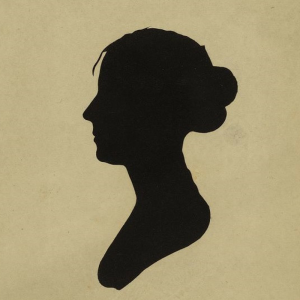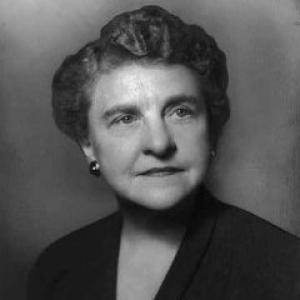FEW is celebrating the valiant women throughout history for Women’s History Month. FEW will shine a spotlight on some historic figures of our great nation that fought for justice, equality and inclusion. Visit throughout the month of March to read about “Valiant Women of the Vote: Refusing to be Silenced.” We continue this week with Sarah B. Cochran and Frances Payne Bolton.
Sarah B. Cochran (1857-1936)

Once called America’s only Coal Queen, Sarah B. Cochran was a coal industry leader and philanthropist in an era when American women couldn’t universally vote or serve on juries. By choosing to go out into the world and do the unexpected, she was able to support women’s suffrage and education, and was the first female trustee of Allegheny College.
Sarah Boyd Moore was born on April 22, 1857 in Fayette County, Pennsylvania to farmers of such humble means that they couldn’t afford enough clothes for her to go to school every day. As a young adult, she became the maid in James Cochran’s home. James was a self-made coal industry leader who was the first to sell coal’s byproduct, coke, commercially. Coke was a key ingredient in the steelmaking process, and the steel and coal industries were about to generate incredible levels of wealth in western Pennsylvania.
James Cochran’s son, Phillip, fell in love and married Cochran on Sept. 25, 1879. On Sept. 21, 1880, Cochran gave birth to their only child, James. When her father-in-law died in 1894, Phillip assumed control of the family business. He believed in Cochran’s intellect and taught her the business. Five years later, he died suddenly of pneumonia as a 49-year-old coal magnate. Their son was the expected representative of the family’s estate but died on March 5, 1901 while studying at the University of Pennsylvania.
Already a vice president in the company, Cochran assumed many of her husband’s business responsibilities and board service roles. Among these were president of the Brown & Cochran Coke Company, Washington Coal & Coke Company, Juniata Coke Company, Dawson Bridge Company and First National Bank of Dawson. She was a founder and stockholder of Cochran Coal & Coke Company of Morgantown, West Virginia and the First National Bank of Perryopolis. The companies did business in Pennsylvania, Tennessee, Virginia and West Virginia when Cochran assumed control. Under her leadership, the business grew threefold and expanded to sell coke in England, France, Germany and Mexico. At one point, Cochran was called “the nation’s only coal queen.”
As a widow, Cochran spent eight years traveling in Europe and Asia. Visits to St. James’s Park in London inspired her plans to build her own Tudor mansion, named Linden Hall at St. James’ Park, Pennsylvania. The mansion was built in the vicinity of her childhood home between 1911 and 1913. When it was finished, it had more than 30 rooms, its own railroad stop, as well as a three-panel Tiffany window designed by Agnes Northrop. When 60 Italian stone masons, who did all of the mansion’s stonework, wanted to stay in the US, Cochran sponsored them for citizenship.
Cochran used her position to support women’s suffrage. In 1915, she opened Linden Hall to host a suffrage tea. The fundraiser was advertised in newspapers and drew at least 500 men and women, who listened to Dr. Anna Howard Shaw speak about suffrage and democracy.
Cochran actively supported education. Sometimes by quietly financing higher education for local men and women who expressed an interest in it. In other cases, her support was more public. For example, she funded construction of Cochran Hall, a men’s dormitory at Allegheny College, and donated to Otterbein College, Washington & Jefferson College and West Virginia University. Known as the “Lady-Elect of Allegheny,” she was Allegheny College’s first female trustee, serving from 1908 until her death in 1936. She was also a member of the board of directors of American University in Washington, D.C., and in 1921, the Bethany College Bulletin recorded her contribution for the Sarah B. Cochran Chair of Philosophy at that college.
In 1900 Cochran dedicated a Methodist church in Dawson, Pennsylvania to the memory of her late husband. This church was later destroyed when she presented its congregation with plans for a new, Gothic style stone church. Named for her husband, the Philip G. Cochran Memorial United Methodist Church was officially dedicated on Nov. 20, 1927.
After Cochran died on Oct. 27, 1936, a memorial service themed “The Ministry of Woman” was held at the Philip G. Cochran Memorial United Methodist Church. The service featured ministers speaking about female Biblical figures and Cochran’s life. Since her death, both the church and Linden Hall were added to the National Register of Historic Places.
By Kimberly Hess | 2017
Frances Payne Bolton (1885-1977)

Born into a wealthy family, Frances Payne Bolton pursued a life of philanthropy, politics, and social reform. Bolton was a lifelong advocate of education, healthcare and civil rights for African Americans. She is most noted for her contributions to the field of nursing and her work in the U.S. House of Representatives.
On March 29, 1885, Frances Payne Bingham was born in Cleveland, Ohio to a family with a long history of funding charities and public service. Bolton’s grandfathers, William Bingham and Henry B. Payne served in the Ohio State Senate and Payne was also elected to the U.S. Senate.
In 1907, Frances Payne Bingham married Chester Castle Bolton. After marriage, Bolton took on many volunteer activities that enabled her to support and help the nursing profession. She sat on numerous boards including the Visiting Nurse Association and the Lakeside Hospital Training School. As World War I began, Bolton saw the need for greater training and inclusion of nurses into the armed services and urged the government to take action. As a result, the secretary of war created the Army School of Nursing.
After the war, Bolton continued to support the development of nursing as a profession in numerous ways. One of her most important activities at this time was to donate $500,000 to Western Reserve University (later known as Case Western Reserve University) in 1923. She gave the money to the college to create its school of nursing. The school was later renamed the Frances Payne Bolton School of Nursing to reflect the generous financial support given by Bolton. A firm believer that the field of nursing should be open to all, regardless of race or ethnicity, Bolton helped financially sustain the work of the National Association of Colored Graduate Nurses. Her assistance enabled the organization to continue its work despite financial difficulties during the Great Depression. A large inheritance in 1929 allowed Bolton to set up the Payne Fund, which dedicated financial resources to projects related to education, nursing care and the arts.
During this time, Chester Castle Bolton carried out an ambitious political career in which he served in the Ohio State Senate (1923-1928), before winning a seat in the U.S. House of Representatives in 1928. Sadly, his life was cut short, when on Oct. 29, 1939, at the age of 47, he died in office. Frances Payne Bolton ran as the Republican candidate in the special election to fill her husband’s vacant position. She won and became Ohio’s first female member of the House of Representatives.
During World War II, Bolton had a lasting impact on the field of nursing. She sponsored the Bolton Act in 1943, which set up the US Cadet Nurse Corps to train nurses for military and civilian roles in wartime. In total, the Act provided $5 million of federal funding to enable women to become nurses. Basic training under this program ran for 24 to 30 months. The Act covered students’ tuition, books and living costs. Funding was open to all qualified students regardless of the color of their skin. As a result, the number of qualified nurses increased more quickly, which enabled the United States to sustain the war effort at home and abroad.
Bolton became greatly involved in U.S. foreign affairs and humanitarian activities after the war. In Congress, she joined the House Committee on Foreign Affairs. She became the first woman to lead a Congressional delegation on a 20,000-mile tour of Africa in 1947. During this trip, Bolton learned about issues facing the countries there, including decolonization, aid relief and healthcare. She continued to make frequent trips to Africa, advocating for democratic systems to be set up in the newly independent countries. At home, she urged the U.S. State Department to form a branch specifically dedicated to aiding African countries. The Bureau of African Affairs was founded in 1958 because of Bolton’s support. She also became very interested in Arab-Israeli affairs and toured Palestinian camps in 1947. President Eisenhower, aware of Bolton’s diplomatic activities, asked her to join a Congressional delegation to the United Nations in 1953. Doing so, made her the first female Congressional delegate to the organization.
Bolton held her Congressional seat from 1940 until 1968, when she was defeated by Charles Vanik, a Democrat. After she lost her seat in the House of Representatives, Bolton retired from Congress. But she continued her charitable work. She sat on a number of boards, including the Tuskegee Institute, the Middle East Institute and the School of Advanced International Studies at Johns Hopkins University.
Bolton’s diverse humanitarian efforts in the United States and abroad did not go unnoticed by the U.S. government. In 1976, she received public recognition for her efforts, when President Ford awarded her the National Human Relations Award of the National Conference of Christians and Jews.
Frances Payne Bolton died on March 2, 1977 in Lyndhurst, Ohio at the age of 91.
By Dr. Kelly A. Spring | 2017


